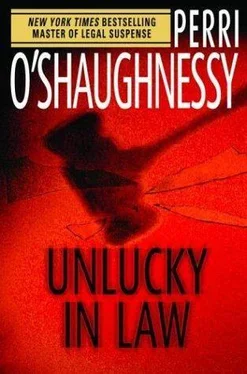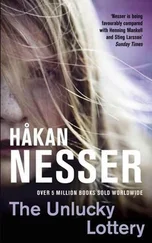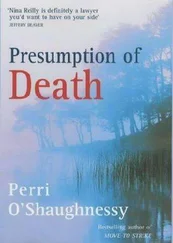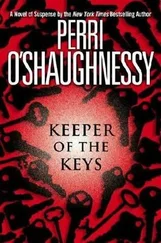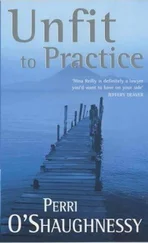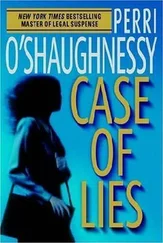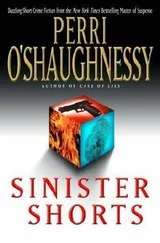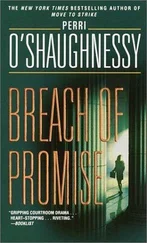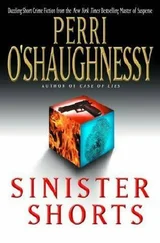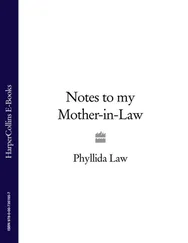“My father wanted to be buried wearing it on a sash across his shoulder. He used to say he got it as a kind of joke when he was little for fighting with his teachers. I never knew it was valuable.”
“Was your father in the military? Involved in the revolution in 1917, maybe?”
“No.”
“Funny how things happened there,” Paul said. The naïveté of the comment was rewarded with another snarl. This professor was the fiery sort of intellectual. Paul had no use for intellectuals these days. They made lousy lovers who wouldn’t live with you. “Wouldn’t the poor old tsar be turning in his grave, seeing how things have turned out for the country that murdered him to make a revolution,” he went on, hoping to stoke the fire.
“The country did not murder the tsar! The tsar and his family were assassinated by Bolshevik elements.”
“I understand they finally dug up the grave of the Romanovs in 1991,” Paul went on, “but two of the bodies were missing. It’s a strange parallel.”
Zhukovsky made a sound, guttural, untranslatable, but plainly repelled by his comment. Paul had just been riffing, and had never intended to turn the professor off.
“Sorry,” he said. “Didn’t mean to disrespect your father. It’s just-you were talking about the second burial-and the two missing bones.”
Zhukovsky had had enough. “You have my card,” he said. “I want the remains of my father delivered to me care of that address within one week. I’m dead serious about this.”
“He lies, left, right, and center,” Paul said. As Wish dodged the curbs, driving them back to Carmel, Paul scribbled. “Let’s assume he hired Stefan to dig up the grave, but not to kill his sister. Question is, why? For the medal? It’s valuable, and not doing the old man any good under six feet. If Zhukovsky wanted that so badly, then why hire Stefan Wyatt to take his father’s remains as well?”
“For a satanic ritual,” Wish guessed. “Or, what about this? In Africa they grind up rhino horn for an aphrodisiac and sell it in the Far East…”
“The problem with your theory is, once he had the bones back from the cops, he cremated them. We’ll check that, but I believe him on that score. I’ll grant you, maybe the old man had a horn on his nose no one’s talking about that’s all ground up…”
“You’re makin’ fun of me.”
“Not at all. It makes as much sense as anything I can think up.” Paul thought some more, then said, “Maybe Zhukovsky has some genetic issue to explore that he doesn’t want anyone to suspect. One of those diseases that hits in middle age? Like we were all worried Arlo Guthrie might get.”
“Who?”
“Son of Woody?” Paul stared at Wish, who continued to relay incomprehension. How could he not know these cultural icons? Was Paul, twenty years older, so removed from the current set of urban legends? “Huntington’s chorea. Or Parkinson’s? I’m not sure which diseases they can find through genetic testing, but I’m making an educated first guess that’s what he wanted to find out.”
“Then why doesn’t the professor just test his own blood?” Wish asked, showing one of his rare flashes of intelligence.
“Good point,” Paul admitted.
“His father was dead in his grave for twenty-five years. So what’s the big rush?”
“Make a note for me to try to obtain Constantin Zhukovsky’s medical records. Alex’s will be completely off limits. I want you to Google the Web tomorrow. Look for the Order of Saint George. Write up a report of whatever you can find out and leave it in the mailbox at the Pohlmann office. Nina will be working there Sunday night.”
“Check.”
“I want verification on what the medal is worth, who gets it, and why.”
“No sweat.”
“Now, the boyfriend, if that’s what he was. The man she spent a lot of time with at this conference.”
“Sergey…”
“Krilov. Use the ID software on my computer at the office and find out more. Do the same on Constantin Zhukovsky, the father. See if you can find out when he came to this country. Maybe you can find some immigration records. You can get old ship passenger lists on the Web these days. Ellis Island, the whole thing. Check some of the genealogy sites like Ancestry.com. Hell, see what you can find on the whole mother-loving family. Alex. Christina. Give that info to Nina, too. Let’s get a copy of the death certificate. Call the county and see what office you have to go to.”
“Sure.”
“I can’t believe Dean Trumbo didn’t do any of this work. This is nuts. She’s in the middle of trial, trying to incorporate this basic investigative information, tearing her hair out.” Paul clenched a fist.
“Didn’t Trumbo rent your office last year?”
“Yeah. Deano.”
“That’s the same face the professor made when he said that name.”
“Deano’s giving the P.I. profession a bad name, and I think it’s time I did something about it.”
“Talk to him?”
“Something like that,” Paul said.
“Whoa.”
“What happened to Christina when she left the good old U.S.A.? A brother is going to know this stuff,” Paul said absently. They passed the Del Monte exit, along the eucalyptus-covered grounds of the Naval Postgraduate School. To their right a neighborhood of not-too-spiffy frame houses led to the little strip of sand called Del Monte Beach, where Paul had once had a bachelor apartment on Surf Way.
“I’m gonna say-Russia.”
“My conclusion exactly.”
“With her boyfriend, Krilov.”
“Maybe that’s where she met him.”
“Playing house or playing politics?”
“That is the question.”
Wish adjusted his sunglasses. He said, “I’m getting smarter. I watch you. I’ll see if Christina’s passport was taken into evidence. So where do we eat? The deli at the Thunderbird Bookstore?”
“Take the next exit,” Paul commanded.
“But we’re miles from Carmel. This is Monterey!”
“Do it!”
Wish swung off Highway 1 at the Aguajito exit.
“Get to the right.”
Wish signaled and moved, setting off a chain reaction of traffic goofs that would be laughable if they weren’t so damn sad. These people should put down their mobile phones, quit slopping food around their mouths, quit plucking their eyebrows, and give the open road its due respect, Paul thought.
“Now, as soon as we cross this intersection, there’s a tiny entrance on the right. Turn there.” Paul scrutinized the row of greenery screening a narrow driveway. “Hard right!”
Wish turned on his blinker and made the turn, squeaking through a narrow, gated entrance. “Cementerio El Encinal,” he read.
“Let’s take some photos for Nina. Then we’ll eat.”
Saturday 9/20
THE GRAVEYARD AT EL ENCINAL DID NOT FEEL SAD, PAUL THOUGHT as they wended down the asphalt paths in the Mustang on Saturday afternoon. Here and there, a visitor stood or kneeled near a loved one, and there was an atmosphere of conviviality. Fresh flowers, some wilting, mixed liberally and acceptingly with long-lasting silk. People did not forget their dead, even in these modern times, on a sunny weekend in a resort town. Paul felt heartened by the thought, not that he really gave a damn what happened after he went. Still, it was nice to find people remained sentimental.
He thought of the thousands of people lying under the earth, layers of them, centuries of them, now dirt themselves, recycled, remembered as faintly etched headstones, as bones for study, as ancient cultures, as primitives. He gave their collective souls a nod. If anything, people now seemed obsessed with dredging up historical evidence through bones, looking for clues to what? A broader picture of human identity?
Читать дальше
